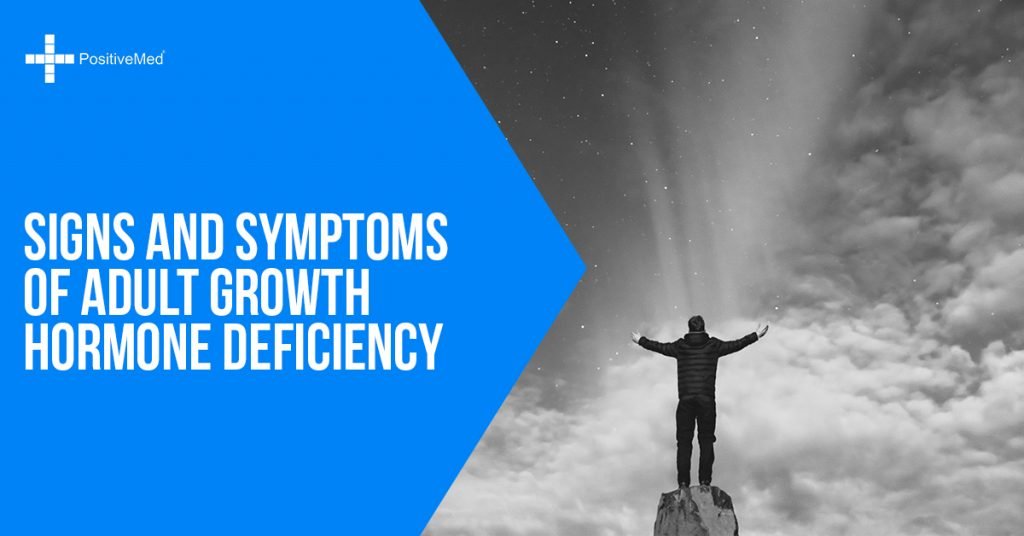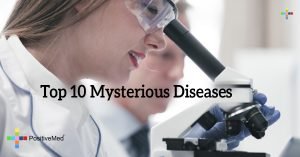Symptoms of adult growth hormone deficiency usually depend on your age. If you are an adult with this condition, symptoms may vary from that of a child with growth hormone deficiency. This article will take you through growth hormone deficiency in adults and surface you with important information about HGH.

Adult Growth Hormone Deficiency Symptoms
Symptoms of adult growth human deficiency can be different, but most people with this condition can experience a combination of the following symptoms:
1. Baldness in men
2. Heart problems
3. Poor memory and concentration difficulties
4. Depression and/or anxiety
5. Decreased sex drive and loss of interest
6. Decreased strength and muscle mass
7. Dry and thin skin
8. High triglyceride levels
9. Tiredness and fatigue
10. Insulin resistance
11. Low bone density, making you vulnerable to osteoporosis
12. High levels of the “bad” cholesterol (LDL)
13. Reduced tolerance to workouts
14. Abdominal weight gain
15. Extremely low energy levels
16. Increased sensitivity to cold and heat
Understanding Adult Growth Hormone Deficiency
It’s important to note that growth hormone deficiency can manifest differently in each person. You may have one or two symptoms, but there may be multiple symptoms in other cases. Luckily, your doctor can diagnose growth hormone deficiency by performing tests and examination. It is recommendable to check for tests that can make accurate growth hormone deficiency diagnosis.
Causes of Adult Human Growth Deficiency
There are no specific causes of growth hormone deficiency in most cases. Researchers suggest that genetics can rarely cause the condition. The pituitary gland located in the brain produces the human growth hormone (HGH). When it fails, growth becomes slow. Some people are born with this condition which is called congenital growth hormone deficiency. But it can also develop when you are an adult, which is referred to as acquired growth hormone deficiency.
Other causes of growth hormone deficiency include:
1. An infection in the brain.
2. Severe head injury.
3. Hormonal issues linked to the pituitary gland or hypothalamus gland.
4. Head tumor or history of pituitary tumors
5. Brain surgery or radiation treatments to your head.
6. Disrupted flow of blood to the pituitary gland.
Adult Growth Hormone Deficiency Diagnosis
Tests and examinations for growth hormone deficiency are the same for adults and children.
Blood Tests for Growth Hormone Deficiency
1. Binding protein levels (IGF-I and IGFBP-3) blood tests: This shows if the condition is caused by the pituitary gland.
2. Blood tests to check the levels of growth hormone in the blood.
3. Blood tests to check the amount of growth hormone produced by the pituitary gland.
4. Growth hormone stimulation test.
5. Insulin tolerance test
6. GHRG-arginine test
Other tests and exams for diagnosing growth hormone deficiency include:
1. A dual-energy x-ray absorptiometry (DXA) scan which measures the bone density
2. Hand x-rays which measure shape and size which shows abnormalities and changes in bones as you age.
3. An MRI of the brain to examine your hypothalamus gland and pituitary gland.
4. X-rays of the head to detect any problems with the bone of the skull.
Growth Hormone Deficiency Treatment
The most commonly used method for treating growth hormone deficiency in adults and children is called growth hormone therapy. It involves injections of growth hormones into the body. A growth hormone called somatotropin which is usually produced by the pituitary gland is injected to stimulate growth and cell reproduction.
Typically, you should get daily doses of growth hormone if your doctor prescribes it to you. Nevertheless, there are some cases where your prescription may be higher depending on the severity.
In most cases, you should report to your doctor every 4 to 8 weeks during your treatment to have your condition monitored. Doctors perform blood tests to find out whether you still require more injections with the growth hormone. Your health care provider also examines blood glucose levels, bone density, and cholesterol levels periodically when you are under treatment. This helps to determine if they are at healthy levels. Treatment with growth hormone can impact how your body responds to insulin, which regulates blood glucose levels. If left untreated, growth hormone deficiency can trigger osteoporosis and high cholesterol.
How safe is Growth Hormone Therapy?
While growth hormone injections are considered to be effective and safe, some people report side effects. However, there are very few cases of adverse side effects. The most common side effects include numbness, swelling, muscle aches and pains, and joint pain.
Most of these side effects are experienced if you are getting a higher dose of growth hormone than required. It is very important to seek immediate help if you have these symptoms. Your dose requires some adjustments which your doctor makes.
Who Should Avoid Growth Hormone Therapy?
You are not supposed to get growth hormone injections if you have cancer or tumors. This therapy is also not suitable for people who have multiple injuries from trauma, with serious illnesses, or severe breathing difficulties.
Alternative Treatments for Growth hormone Deficiency
You may require other treatment for growth hormone deficiency on top of growth hormone therapy. Mental and emotional therapy may be necessary if your condition negatively impacts your self-esteem and confidence. You can seek the help of a mental counselor.
It’s also recommendable to exercise regularly, eat a balanced diet, and get adequate sleep as a part of your growth hormone deficiency treatment plan. You should also make healthy lifestyle changes and choices throughout your recovery process. Your doctor should help you how to adopt and integrate growth hormone injections into a healthy lifestyle.






